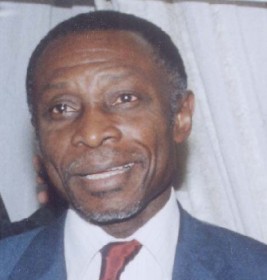According to Ronald Austin, one of Murray’s supporters, Greenidge has reacted positively. “He is interested,” Austin stated, adding that Greenidge will have to work out the consequences for his professional life. “We expect him to go ahead and I think he is eminently qualified,” he added while describing Greenidge as a person of “rock-like integrity.”
According to Austin, the former minister knows all the players and has one of the best political networks of anyone he knows. “The [Murray] group supports him and I think he will get support from other groups in the society,” Austin stated. Efforts to contact Greenidge in Barbados, where he is based with the Caricom Secretariat’s Office of Trade Negotiations (OTN), were unsuccessful.

He is currently the Deputy Senior Director at OTN and is a member of its management team. Greenidge served as an interim Secretary General of the ACP Group in Brussels and Director of the joint ACP-EU specialist institution on information communication technology, the CTA in Wageningen, The Netherlands.
As Minister of Finance in the PNC administration he headed the Guyana teams that negotiated agreements such as Paris Club and the first programme for the clearance of arrears to the Multilateral Institutions under the ‘Intensified Collaborative Approach’ for chronically indebted countries and buy-back of commercial debt, on which successful management of Guyana’s Economic Recovery Programme and HIPC-eligibility were based.
Greenidge has served on a variety of international bodies, including the European Forum on International Cooperation (EUFORIC), the European Centre for Development Policy Management (ECDPM) and the 5th UN Expert Group on Financial Issues of Agenda 21, which spawned the ‘Nairobi Initiative on Capacity Building for Financing Sustainable Development.’
He was Vice Chairman of each of these bodies and is a former member of the Advisory Boards of the University of Oxford’s Regulatory Policy Research Institute (RPRI) and Regulatory Policy Centre (RPC). Recently, he has been a Coordinating Lead Author of the International Agricultural Assessment of Science and Technology (IAASTD) with responsibility for East, South Asia and the Pacific Regions.
Meanwhile, accountant and attorney Christopher Ram yesterday revealed that he had declined to be a nominee in the PNCR process. Ram, who is not a member of the party, told Stabroek News that he was approached by a PNCR group last week and that he had considered the matter but decided against it on Saturday. One of the major reasons, he said, was the lack of clarity of the role of presidential candidate relative to the leader of the party and the leader of the list.
According to Ram, the party’s constitution does not cater for a presidential candidate and he was unclear on what his vested authority would have been.
PNCR Leader Robert Corbin has indicated that while he was not going to be the party’s candidate at the 2011 elections he was retaining his leadership role.
Ram said there was potential for an untenable position to develop should they fail to find common ground on policies.
The PNCR has announced that the candidate would be elected at a special congress to be held on February 19, next year. Murray and his backers, prior to his death on November 22, had raised concern about the process being used as well as the apparent preferential treatment of one of the prospective nominees. Among those already in the running to be the candidate are retired Brigadier David Granger, former minister Dr Faith Harding and current party vice chairman Basil Williams.





